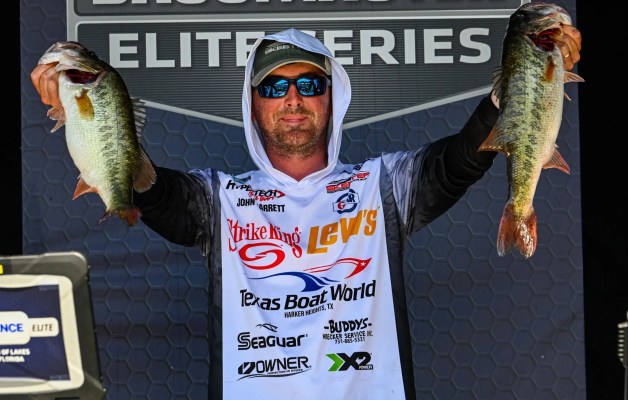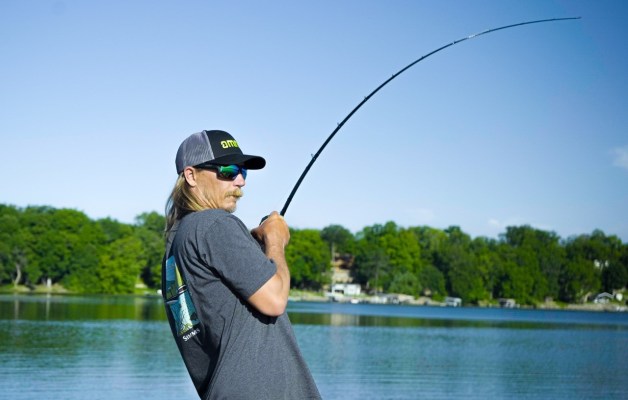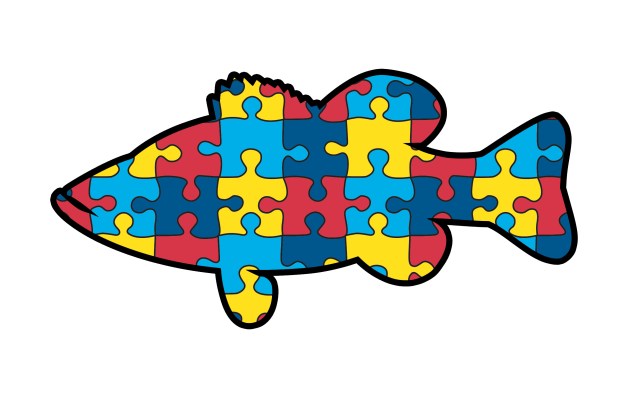Usually I'm writing about one tournament and what it will take to win, but today we have four tournaments going on all at once, and the methods and personalities involved in each should make for some compelling content over the next few days.
Forget the seeds. They're meaningless except for establishing the pairings for the seven mini-tournaments to come — each one eliminating an angler and ultimately deciding our champion, who will walk away with $100,000.
More on that prize money later.
Casey Ashley holds the No. 1 seed, and for that honor he gets to fish against one of the sport's all-time greats — Skeet Reese. Not such a good deal for Ashley, huh?
But when you glance at the field you realize there are no easy pairings out here and no weak sisters to walk through on the way to the championship. Every pairing promises to be hotly contested. Every angler here is already a champion — usually many times over. But one will soon be B.A.S.S.' first match fishing champion.
Elite Series tournaments are all about managing fish, making sure you have four days' worth of quality bass and that you judiciously mine them to maximum effect.
Match fishing is not like that. Not only are these anglers "fishing against the fish," as they must in every other event, but they're also pitted against each other, head-to-head — Ashley vs. Reese; DeFoe vs. Iaconelli; Martens vs. Evers; Scroggins vs. Swindle.
The drama that match fishing offers is that you can honestly say these individuals are fishing "against" each other as well as the fish. The problem is that match fishing can quickly become better known for its injustices rather than its drama.
What if Scroggins and Swindle post the best two weights on Friday? Ordinarily, they'd rise to the top of the leaderboard, but in match fishing, one of them will go home and the other will start over against a new opponent on Saturday.
Rest assured, there will be one or more storylines like that.
In an ordinary tournament, an angler will pace his fish, bringing in just as much weight as he feels is required to make cuts and advance against a large field over the course of four days, knowing that he doesn't have to win the tournament in a single round.
Match fishing is sudden death, and no weight is safe if your counterpart has an ounce more than you do.
Mike Iaconelli said there's no holding back in this format. "I won't feel safe with anything less than 20 pounds," he said. "Until then, I'm going for broke."
On the Alabama River in late July, no one's going to catch 20 pounds in a day.
Other anglers feel good about lesser weights — 14 pounds, 15 pounds — but you never really know what your opponent has, so you can never feel truly safe. Maybe you need another pound … or four.
And, in case you're wondering, the eight anglers in the finals will not know how the others are doing. They voted on that Thursday afternoon. Some wanted to be able to access BASSTrakk on their smart phones, but a couple of them don't carry phones with web access, so they'll all be fishing "dark."
One of these days, tournament boats will carry leaderboard software to keep all the anglers apprised of what the rest of the field is doing. Currently, we have the only sport I can think of where there's no running tally that the competitors can look to and adjust their gameplan.
Can you imagine the New England Patriots not knowing that they're down two touchdowns with five minutes to go? Without that knowledge, they might continue to grind things out on the ground rather than air it out and put the game in Tom Brady's hands.
It's a clear next step, and one that I'd welcome … as long as that running tally could be made accurate (perhaps by having the Marshals weigh the keepers before they go in the livewell). I think it would add levels of strategy to the sport that we don't have now.
But back to the prize money: As you may know, Toyota Trucks All-Star Week was set up as a winner-take-all event, with the champion earning $100,000 and the other 11 anglers going home empty-handed (or worse when you consider that they incurred expenses in getting here and practicing).
Skeet Reese, a veteran of the two previous B.A.S.S. postseasons, had an idea. He told the other seven competitors in the finals that if he won the event, he'd cut each of them a check for at least $2,000 to help cover their expenses.
The others liked the idea so much they agreed to do the same if they win. It was a generous offer by one of the best business people in the sport, and a man who quietly and consistently shows compassion for his fellow anglers and friends.





